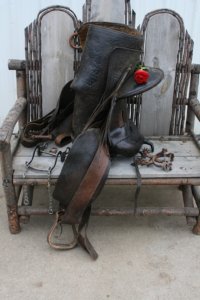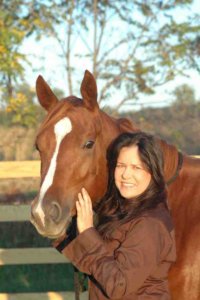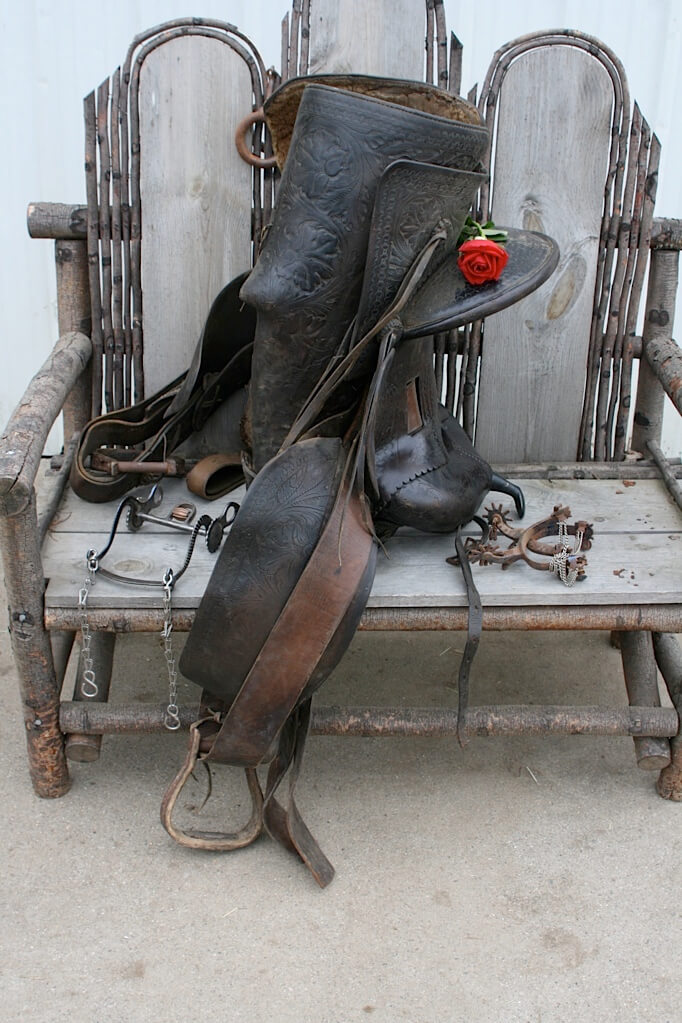Find Cash in Your Tack Box
by Laurie Cerny

Nearly every 4-H horse club and many breed and show organizations now sponsor spring tack sales or swaps. For horse owners these tack sales can bring in some extra cash and they’re also an incentive to clean out tack boxes and tack rooms. If you’re not using it, or if it doesn’t fit – whether it’s tack or show clothing—it should go. Sometimes an item is kept for sentimental reasons but remember that tack and clothing gets dated in a couple of years. For this reason, keeping a show halter from your retired showmanship horse is probably not a good idea. When tack and show clothing are still in style, and if these items are in good shape, you should be able to get at least 50-60 percent of what you paid for it new. Years down the road, when the item is outdated, you’ll likely be fortunate to find a buyer at all. Here are some tips for selling items at an upcoming tack sale:
- Clean tack and wash and press clothing, blankets, and other soft goods.
- Get your items gathered and organized at least a week before the sale.
- Mark sale tags with the size and price of the item. Either purchase tags from an office supply store, or make your own – using small squares of paper. These can be stapled to the clothing tag (located in the collar of a shirt or in the waist band on a pair of pants), or around the brow band, cheek piece, etc. of a halter or bridle. Self-adhesive labels should only be used on items where they have a solid surface for adhering to – like on the shank of a bit, or on the cover of a book.
- Use rubber bands or string to tie together reins and other strap items like lead ropes and lunge lings.
- For large ticket items (like saddles, show halters/bridles, chaps, etc.) make take-away cards for potential buyers that have the item, price, and your phone number on them. These cards can be really helpful at large tack sales – where shoppers may want to look around first, but then forget where your table is at, etc. It also gives them a way to contact you after the sale – should you still have the item and they still want to buy it.
- Take at least $20 to make change with (13 singles, one five, and two dollars in quarters).
- Use a fanny pack as a moneybox. This way your change and the money you take in are always on you. Have a separate location to keep checks and to put large bills and extra cash once you start to make sales.
- Take a variety of bags. Buyers really appreciate having something to carry their purchases in.
- Arrive to the sale location early and be ready at least 15 minutes before the start of the sale. There’s nothing worse than trying to set up while people are shopping your table.
- Think height when it comes to organizing your table. Take a couple of milk crates (or similar containers) to set on your table. These will give you more display space, and will give buyers somewhere else to look besides your table.
For more tack sale advice and other practical horse care information go to: www.good-horsekeeping.com.

Laurie Cerny has owned and showed horses for more than 30 years and is a member of AQHA and ARHA. She is a retired journalist and member of American Horse Publications. Her writing and photography has appeared in all of the major equine publications. In addition, she worked as a newspaper journalist for over 25 years, and was an adjunct college English/Journalism instructor. Laurie is editor and publisher of good-horsekeeping.com and owns a small horse farm in Michigan with her partner, Dennis. Her weekly blogs on efficient and practical horse care can be read at good-horsekeeping.blogspot.com. You can tweet her at https://twitter.com/goodhorsekeepin , or email her at [email protected]
Published March 2013 Issue

The Northwest Horse Source is an independently owned and operated print and online magazine for horse owners and enthusiasts of all breeds and disciplines in the Pacific Northwest. Our contemporary editorial columns are predominantly written by experts in the region, covering the care, training, keeping and enjoyment of horses, with an eye to the specific concerns in our region.






